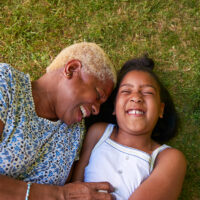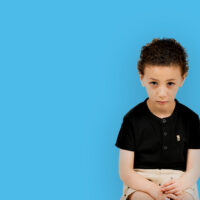Sex differences
-

Insights from Two Decades of Statewide Data on the Diagnostic Rates among Autistic Females
A 2024 study by Harrop and colleagues reflects how the landscape of autism diagnosis for females has evolved. Drawing on more than 10,000 diagnostic records from the TEACCH Autism Program in North Carolina, spanning the years 2000 to 2021, the study reveals a steady increase in the proportion of females identified as autistic. While diagnostic pathways are becoming more inclusive, late recognition remains a concern, highlighting the ongoing need for approaches that acknowledge the diversity of autistic experience.
Read more -

Adopting a lifespan lens to understanding females on the autism spectrum
In this session, Dr. Harrop presents up-to-date research spanning early childhood through adulthood that characterizes the profiles and experiences of autistic females.
- Event type
- Introductory and Update Session
- Location
- LIVE STREAM
-

Female ADHD and Hormones – The Perfect Storm
Dr Lotta Borg Skoglund, leads a session that explores the underrepresented biological differences between sexes in ADHD research and clinical practice, despite a growing awareness of ADHD in girls and women. The session highlights how the historical male-centric lens on ADHD has led to delayed diagnosis and mismanagement in females, particularly during hormonally sensitive life phases.
- Event type
- Introductory and Update Session
- Location
- LIVE STREAM
-

Eating Disorders: A Concern for All
Did you know that approximately 22% of children and adolescents worldwide show disordered eating? Eating Disorders Awareness Week (24 February – 2 March 2025) is an opportunity to improve awareness that anyone can have an eating disorder and explore the impact that eating disorders can have on children and young people.
This Eating Disorder Awareness Week, we encourage you to explore the FREE learning opportunities available on our website and ACAMH Learn, and to share with your networks.
Read more -

University Students and Imposterism: Its Relationship with Happiness, Self-Efficacy, and Perfectionism
Imposter syndrome is a pertinent issue in academia. A recent article from May 2023 titled “The imposter phenomenon and its relationship with self-efficacy, perfectionism and happiness in university students” (Pákozdy et al., 2023) sheds light on this pressing issue. This blog aims to summarise the key findings of the article, discuss its strengths and limitations, evaluate its evidence, and provide a personal perspective on how this evidence can inform practice and future research.
Read more -

Chronotype and Depression in Adolescence
We know that there is a bidirectional association between sleep duration/quality and depressive symptoms in youth. In adult populations depressive symptoms and circadian rhythms (sleep chronotype) have also been linked. In this paper, we established an association between chronotype and depressive symptoms in middle adolescence, independently of poor sleep and prior mental health difficulties.
Read more -

JCPP Annual Research Review 2024 – “Time may change me”: Developmental change across multiple time scales
We are delighted to announce the release of the 2024 Journal of Child Psychology & Psychiatry (JCPP) Annual Research Review, edited by Sara R. Jaffee.
Read more -

ASD – Autism Spectrum Disorder
Autism Spectrum Disorder (ASD) is a complex developmental disorder that affects how people perceive the world and interact with others. People on the autism spectrum may have difficulties with social communication, social interaction and restricted and repetitive patterns of behaviours, activities or interests.
Read more -

ADHD – Attention-deficit / hyperactivity disorder
ADHD is a behavioural disorder with three key aspects, inattention, hyperactivity, and impulsivity.
Read more -
